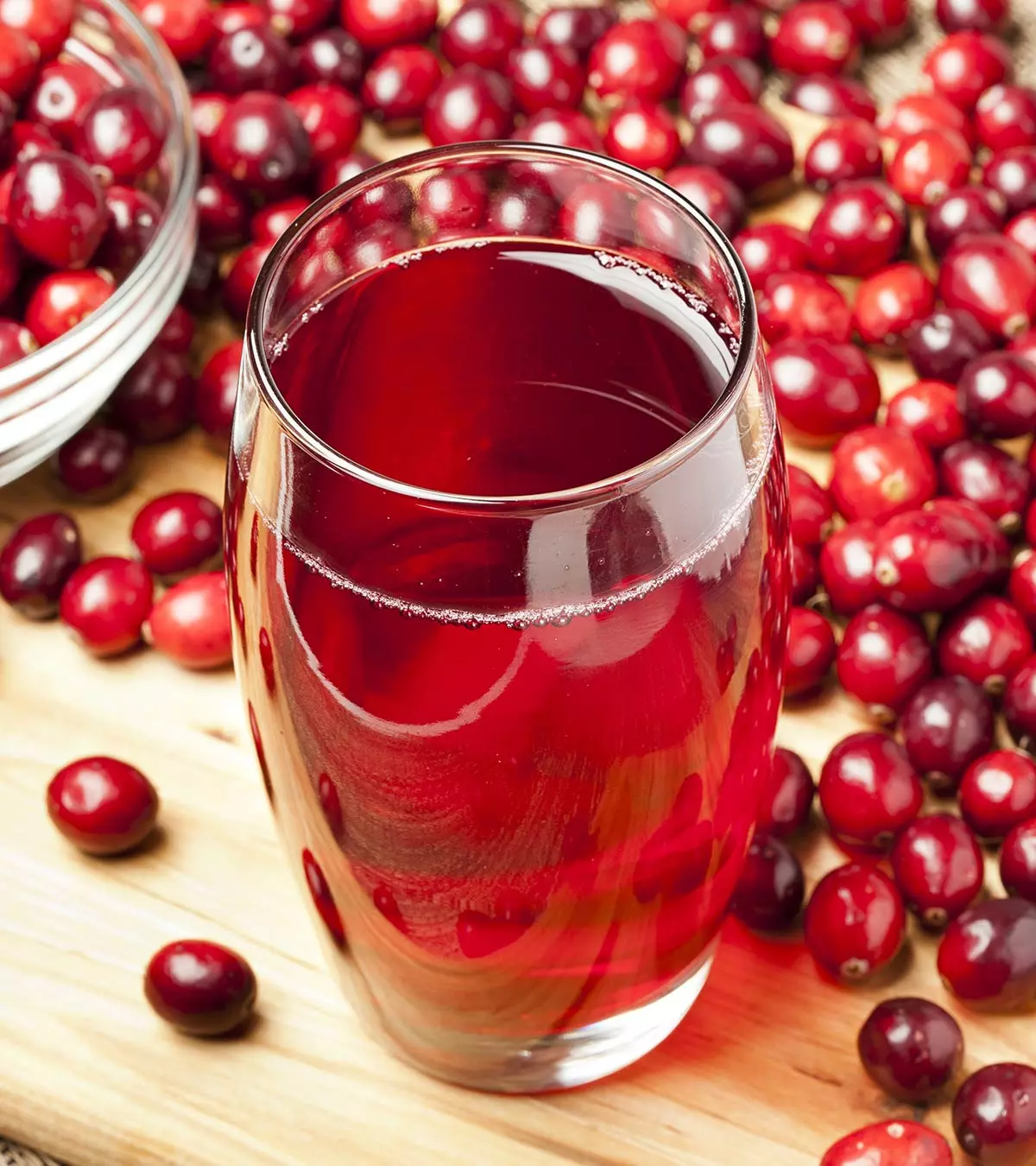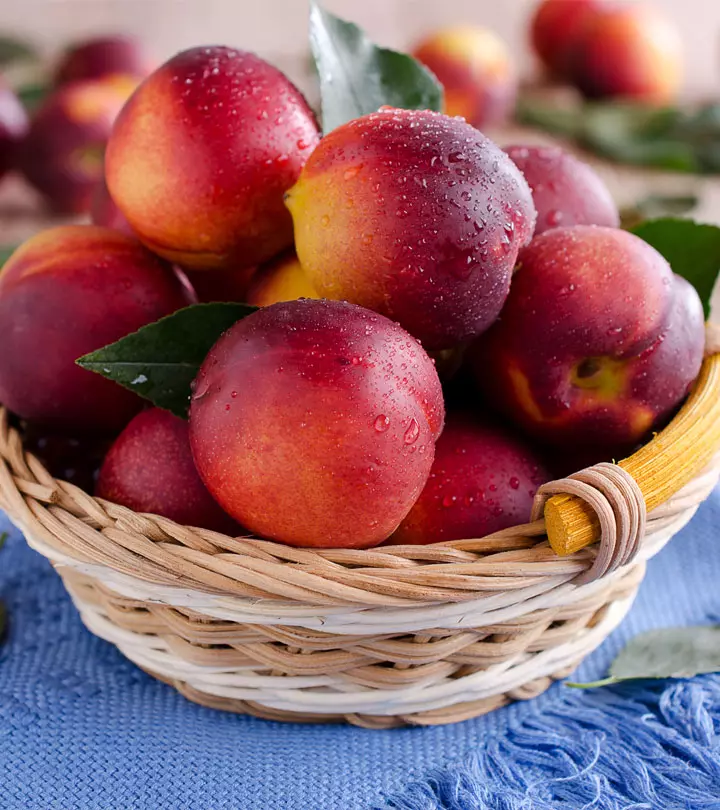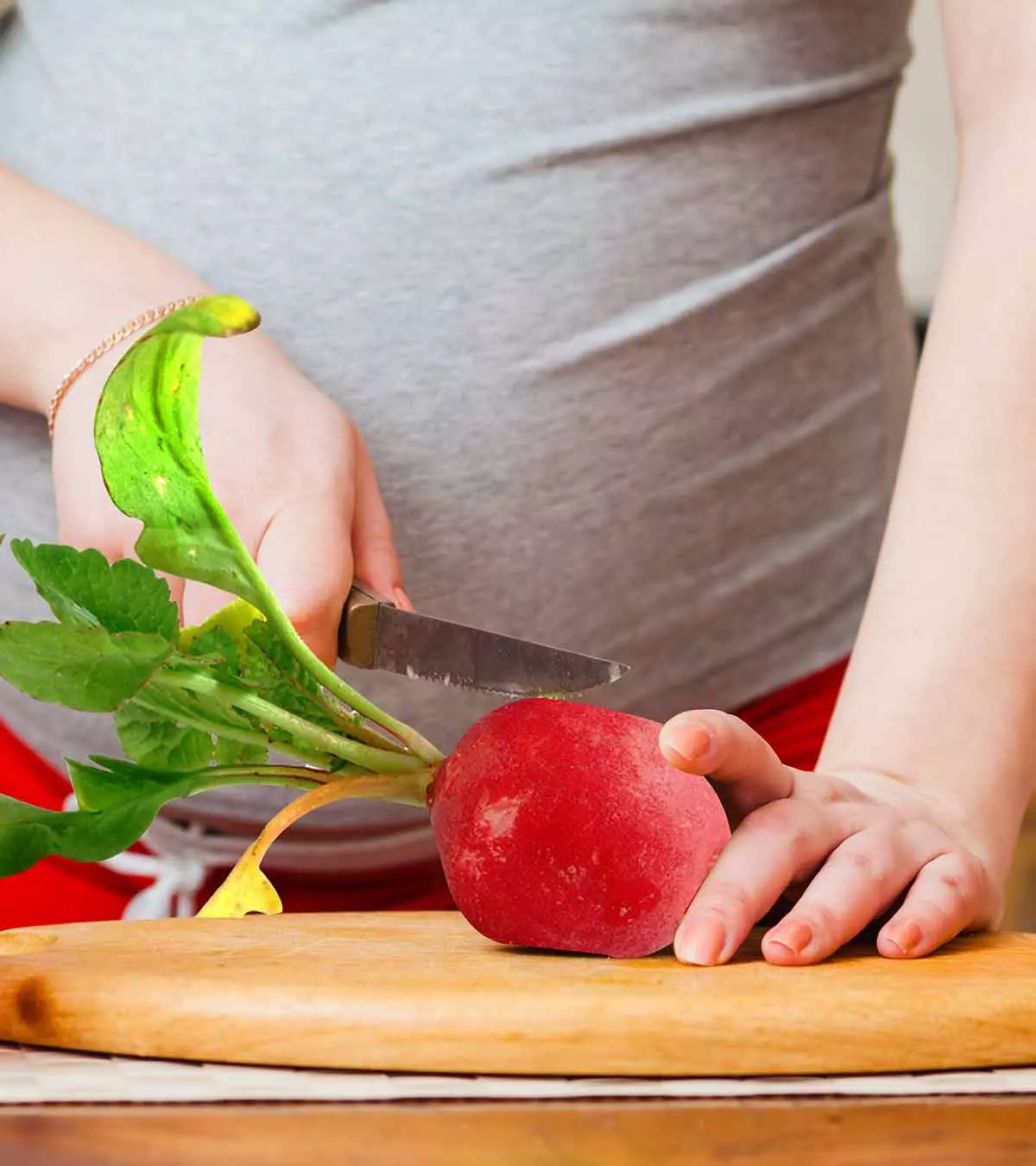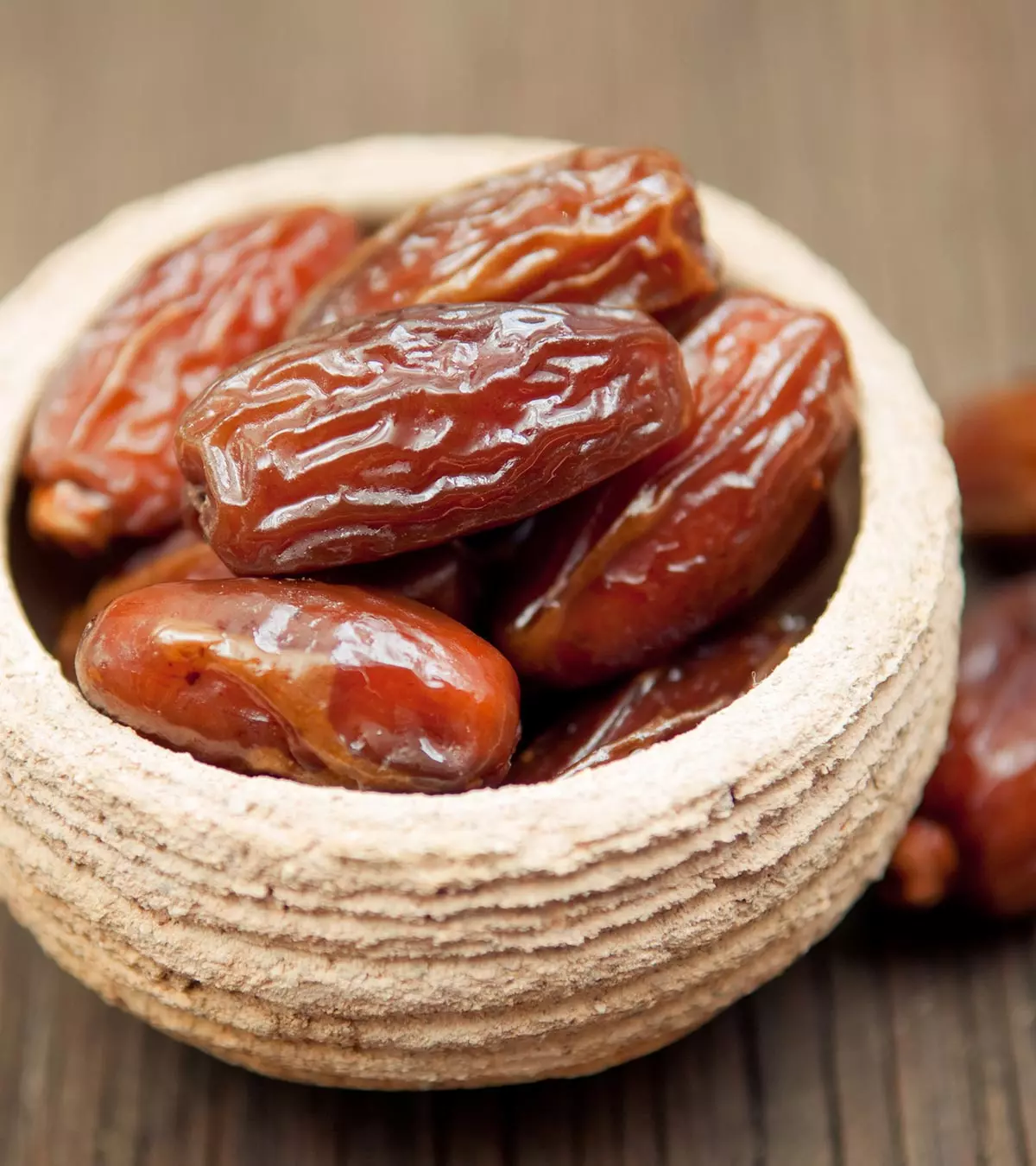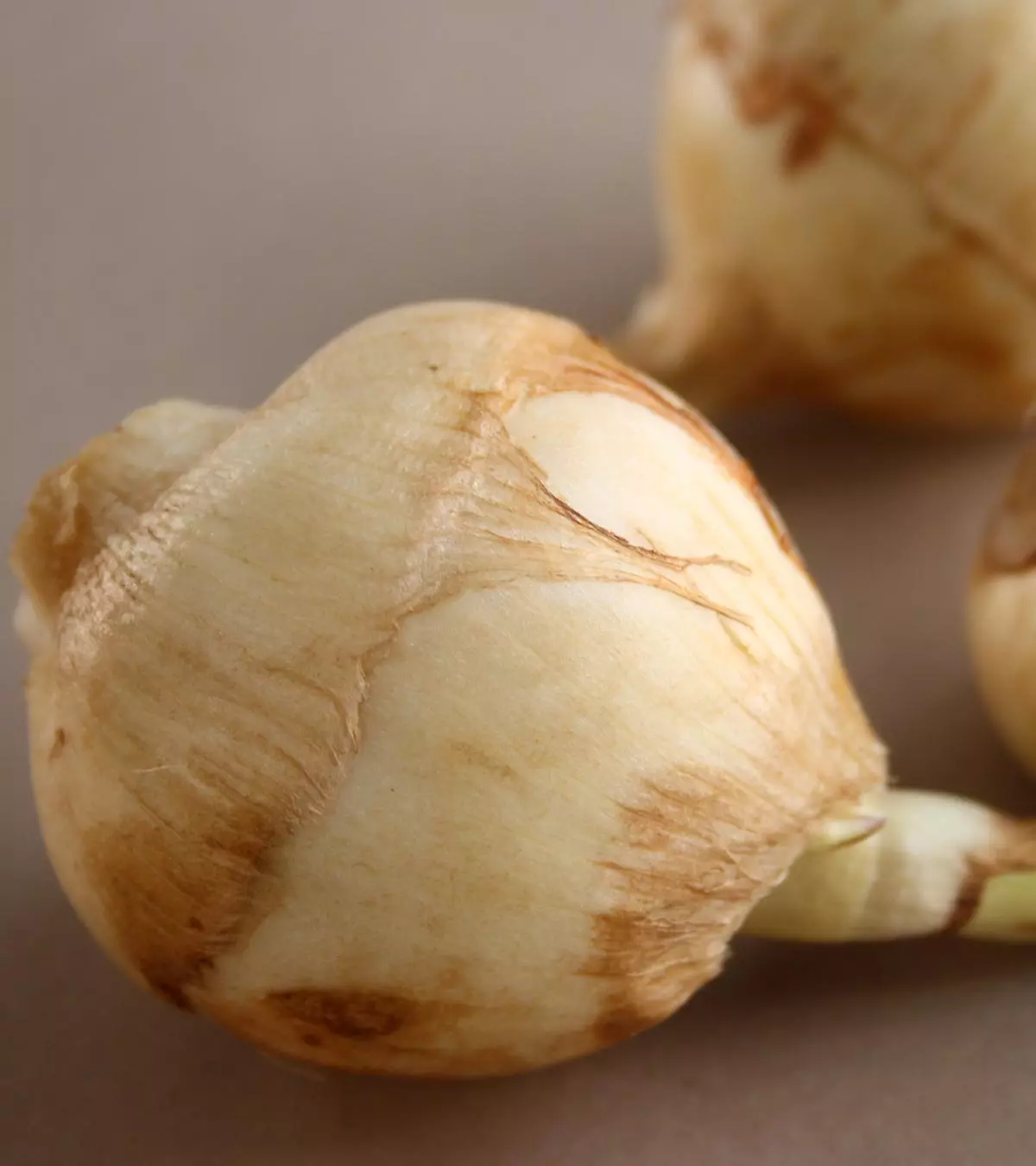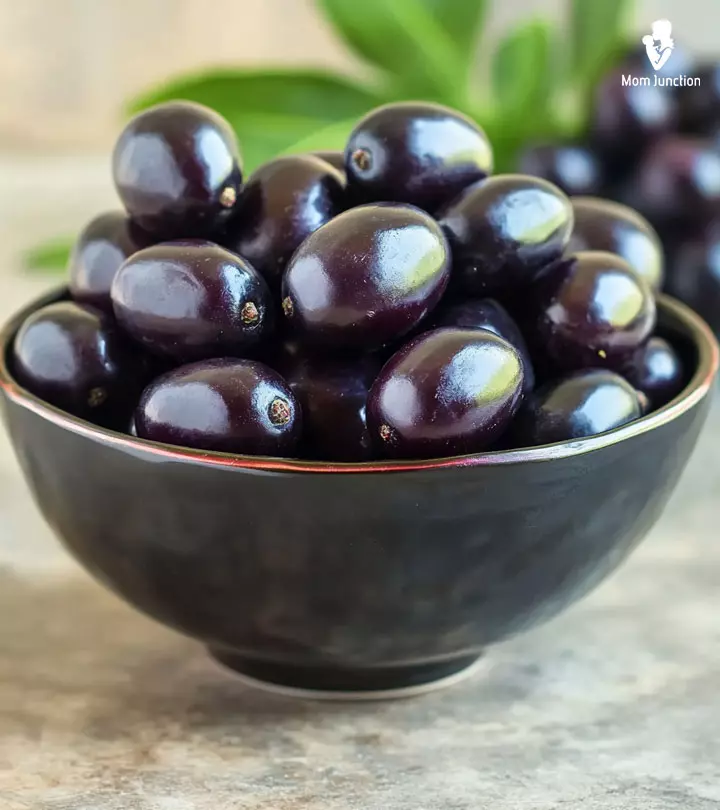
Image: Midjourney/ MomJunction Design Team

Jamun, also known as Java plum, Indian blackberry, or black plum, is a soft-fleshed, nutritious summer fruit with a sweet and tangy taste (1). If you like eating fruits with tropical flavors, you may consider consuming Jamun during pregnancy.
However, since Jamun is known to lower blood sugar levels, is this fruit the right choice for pregnant women? Read on as we tell you more about the safety of Jamun during pregnancy, its possible health benefits and side effects, safe quantity to eat, and precautions to take when eating Jamun during pregnancy.
Key Pointers
- Jamun contains high concentrations of vitamins, minerals, and essential nutrients.
- It is a fruit with a low glycemic index that also has anti-inflammatory and antioxidant properties.
- Overconsumption of Jamun can lead to kidney stones, throat and chest irritation, sputum accumulation, and blood sugar level fluctuations.
- Consumption of 6-7 jamuns a day is considered safe during pregnancy.
- Avoid eating fallen or roadside jamuns during pregnancy.
Is Jamun Fruit Safe To Eat During Pregnancy?
Some claim eating jamun during pregnancy can create small dark patches on the skin of the baby.
However, there are no studies supporting it. You can eat jamun in moderation. But do ask your doctor about it.
 Quick tip
Quick tipNutritional Profile Of Jamun
According to the USDA, about 100 grams of raw black plum provides 60 kilocalories, 15.56g carbohydrates, 0.72g protein, 0.23g fat, 19mg calcium, 15mg magnesium, 17mg phosphorus, 79mg potassium, 14mg sodium, and 0.19mg iron. It also has 14.3mg of Vitamin C, 0.006mg thiamineiA natural form of vitamin B1, required for many bodily processes, including cell growth and metabolism , 0.012mg riboflaviniNatural form of Vitamin B2, essential for body metabolism and beneficial for brain, eyes, and skin health , 0.260mg niaciniA natural form of vitamin B3 employed in various processes such as energy metabolism, cell growth, and function , and 0.038mg vitamin B6 (2).
Possible Health Benefits Of Jamun During Pregnancy
If you like the fruit and are having a few of them regularly, then it might add to your daily dose of nutrients. This is how the nutrients in the fruit could Be helpful to your overall health.
- Vitamin C helps in iron absorption, and could increase the hemoglobin count in the blood (3).
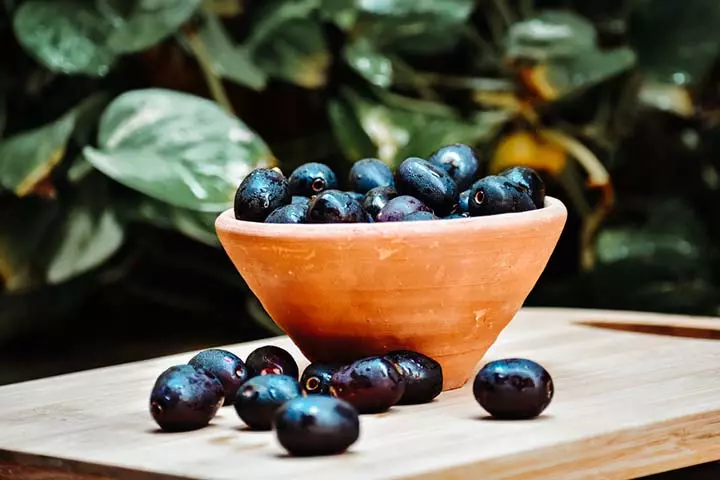
Image: Shutterstock
- Low glycemic indexiA measure of how quickly specific foods (containing carbohydrates) may elevate the blood sugar levels of the fruit makes it suitable for women with gestational diabetesiPregnancy-specific condition characterized by high blood sugar levels, which may pose a risk of complications and insulin resistance (4).
- Antioxidants, polyphenols, and potassium content might help in reducing fatigue and stress.
- Vitamins C, K, and D, and minerals such as iron, calcium, and potassium help improve the immune system and strengthen bone health.
- Nutrients, such as ellagic acidiAn anti-inflammatory, antioxidant compound naturally found in certain plants-based foods , anthocyanidinsiA class of plant pigments known for their antioxidant properties , and anthocyanins prevent the oxidation of cholesterol with their anti-inflammatory and antioxidant properties (5).
- Several nutrients present in the fruit, root, bark, leaf, and trunk of Jamun are used to treat several diseases such as kidney problems, heart health, hypertension, improper digestion, abnormal cholesterol levels, diabetes, and diarrhea.
Jamun may be good for your health if eaten in the right quantities.
 Did you know?
Did you know?How Much Jamun Is Safe To Eat When Pregnant?
One serving (six to seven fruits a day) of jamun is considered safe to take and is not known to cause any problems to the expecting mother and the fetus.
However, consult your dietitian to confirm the everyday requirements of nutrients before adding the fruit to your diet.
Side Effects Of Jamun
You may develop certain side effects if you consume the fruit in excessive amounts.
- Java plums are oxalate-rich that could bind to calcium and cause kidney stones.
- They lower blood sugar levels.
- Might irritate the throat and chest.

Image: Shutterstock
- Could accumulate sputumiA thick liquid comprising mucus and saliva produced by lungs during infections in the lungs.
Precautions To Take While Taking Jamun During Pregnancy
Here are a few things that experts suggest you keep in mind if consuming jamuns during pregnancy.
- Avoid buying roadside jamun as they are contaminated with heavy metals and lead.
- Avoid eating the fruit on an empty stomach or after drinking milk as it has a mildly sour taste that could cause acidity.
While these are the precautions to follow, there is no scientific data to support these claims. However, make sure you are picking healthy jamuns to avoid complications.
How To Select Jamuns?
You may come across jamun trees along the road or in a garden and would want to pick up the fruits fallen on the ground. Avoid eating fallen or roadside jamuns when you’re expecting.
Here are some tips to select quality jamuns.
- Select the soft, pulpy, fully bloomed, and dark-purple fruit.

Image: Shutterstock
- Avoid damaged, bruised, deformed, and discolored fruit.
- Avoid the unripened and hard-textured fruit.
- Do not store jamuns for more than two days at room temperature. The fruits can get spoiled sooner owing to its short shelf-life.
How To Incorporate Jamun Into Your Pregnancy Diet?
Java plums, or Jamuns, are a nutritious addition to refreshing recipes. Here are a few ways to incorporate this delicious fruit into your pregnancy diet.
1. Java plum smoothie
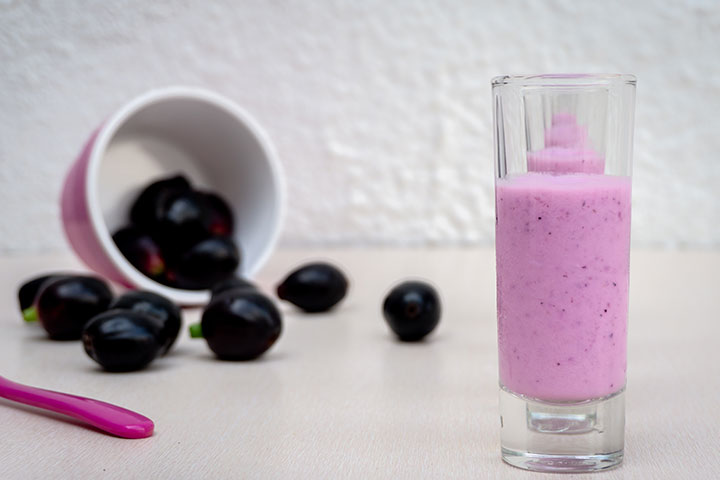
Image: Shutterstock
You will need:
- 1 cup java plums (deseeded)
- 1 cup coconut milk
- 1tsp lemon zest
- 4tbsp oats
- 1tbsp honey
- A few ice cubes (optional)
How to:
- In a blender, combine the java plums, coconut milk, lemon zest, oats, honey, and ice cubes.
- Blend the mixture until creamy.
- If desired, strain the mixture, then pour it into glasses and serve.
2. Jamun mousse
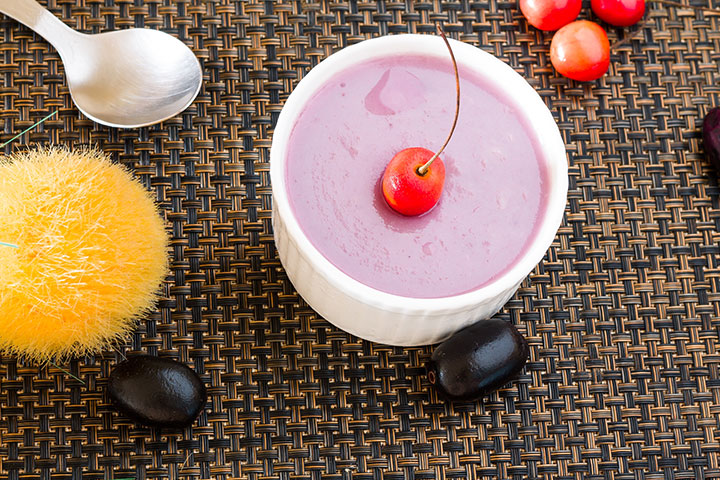
Image: Shutterstock
You will need:
- 2 cups jamun
- 1tbsp balsamic vinegar
- 1 cup low-fat cream
- ½ cup sugar or jaggery powder
- 1tsp gelatin powder
- Mint leaves or fruits (for garnish)
How to:
- Add jamun and half the sugar or jaggery powder to a pan and cook it over low heat until soft.
- Once cooked, separate the jamun skin and seed from the pulp.
- Add balsamic vinegar to the mixture and cook until it thickens to a jam-like consistency.
- Warm half of the cream in a bowl, sprinkle gelatin, and let it soften.
- In another bowl, mix the remaining cream and sugar or jaggery powder, then whip until combined.
- Serve in cups and garnish with mint leaves or your choice of fruit.
- Strain the softened gelatin into the cream and mix well.
- Finally, gently fold the jamun puree into the cream.
Frequently Asked Questions
1. Can jamuns help with bleeding gums during pregnancy?
Various parts of a jamun tree are believed to strengthen gums and teeth (6). However, it is better to have a dentist examine your teeth and rule out other conditions such as gingivitis in pregnancy.
2. Can jamuns cause acidity in pregnancy?
Jamuns might cause acidity (acid reflux) if consumed in excess. However, there is no definitive evidence linking jamun and acid reflux in pregnancy. You may consult your nutritionist if you experience acidity after consuming jamuns.
3. Can jamun help manage high blood pressure during pregnancy?
Studies on jamun pulp and extracts indicate its beneficial properties help reduce high blood pressure. However, further research is needed to understand the consistency of these effects in pregnant women (8).
Jamun is a sweet and tangy fruit rich in health-promoting compounds that provide nutrition. Jamun is one of the best fruits to eat during pregnancy; however, moderation is the key. Regular intake of jamun as a part of a well-balanced diet can help meet your increased nutritional needs during this period. You can also maintain a healthy weight. Nutrients such as vitamin C, potassium, iron, and antioxidants can help keep you healthy and support your baby’s intrauterine development. Jamun also improves your body’s metabolism. However, avoid consuming it in excess since it may lower blood sugar levels, which can be particularly worrisome for diabetic mothers.
Infographic: How To Include Jamun In Pregnancy Diet?
Now that you know the benefits of Jamun, you may want some tips on including this fruit in your diet. This infographic includes delicious recipes and ways to have Jamun without getting bored. Dive in and explore the easy ways to eat the fruit. Illustration: Momjunction Design Team
Illustration: Is It Safe To Eat Jamun During Pregnancy?

Image: Stable Diffusion/MomJunction Design Team
References
1. T. Radha and Lila Mathew;Fruit Crops; Page 331
2. Java-plum, (jambolan), raw; FDC ID: 168150; Food Data Central
3. Afifa Jahan;Jamun (Syzygium Cumini) A Fruit With High Nutritional And Medicinal Value; ResearchGate
4. Antidiabetic Tablets Functional Food Products; Somaiya Initiatives For Research and Consultancy (SIRAC)
5. Akshatha S, Kumar A, Vijayalakshmi G; Resveratrol content and antioxidant properties of underutilized fruits; J Food Sci Technol
6. Shrikant Baslingappa Swami, et al.; Jamun (Syzygium cumini (L.)): A Review of Its Food and Medicinal Uses; Food and Nutrition Sciences
7. Payel Ghosh et al.; Physicochemical and Nutritional Characterization of Jamun (Syzygium Cuminii); Current Research in Nutrition and Food Science Journal (2017)
8. Maryam Khalid Rizvi et al.; Astounding Health Benefits of Jamun (Syzygium cumini) toward Metabolic Syndrome; NCBI (2025)
Community Experiences
Join the conversation and become a part of our nurturing community! Share your stories, experiences, and insights to connect with fellow parents.
Read full bio of Dr. Sangeeta Agrawal
Read full bio of Swati Patwal
Read full bio of Rebecca Malachi
Read full bio of Reshmi Das






